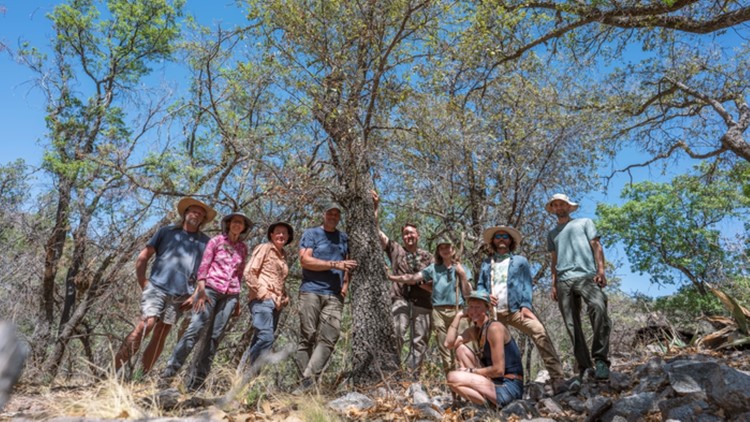BIG BEND NATIONAL PARK, Texas — A species of oak tree that was thought to be extinct has been found at a national park in Texas.
Researchers with the Morton Arboretum in Illinois and United States Botanic Garden discovered the Quercus tardifolia tree -- also known as a lateleaf oak -- at Big Bend National Park on May 25.
The tree was described as being 30 feet tall and in poor condition.
According to the Morton Arboretum, a research center specializing in trees, it was previously believed that the last living tree of this kind had perished in 2011.
Researchers said they may be able to help protect other endangered species of trees by studying why this particular oak tree is going extinct.
"This work is crucial to preserve the biodiversity that Earth is so quickly losing," said Murphy Westwood, vice president of science and conservation at The Morton Arboretum. "If we ignore the decline of Q. tardifolia and other rare, endangered trees, we could see countless domino effects with the loss of other living entities in the ecosystems supported by those trees."
Researchers described the condition of the tree at Big Bend as "dire," suffering from a severe fungal infection and with a trunk showing signs of scarring from fire.
The group that made the discovery is working with the National Park Service to help reduce threats that could end the tree's life, such as wildfires and drought.
Researchers are also looking for acorns to breed new specimens.
“The United States Botanic Garden is thrilled about the success of this partnership and collecting trip that rediscovered such a rare oak,” said Susan Pell, acting executive director at the United States Botanic Garden.
“Across the planet, oaks serve as an ecological anchor cleaning air, filtering water, sequestering carbon dioxide and supporting countless fungi, insects, birds and mammals,” Westwood added. "When one is lost, we don’t know what else we might permanently lose in its wake."



